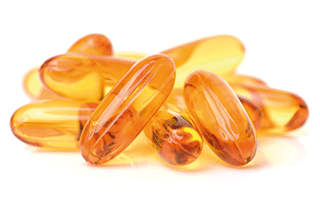The smart guide to winter skincare

Maintain soft, glowing skin all winter long with our expert tips
As our summer tans begin to fade and the woolly jumpers come out from the back of the wardrobe, our skin can start to look and feel a bit lacklustre. “The colder weather has a number of effects on our skin,” says Rebecca Goodyear, chief blogger at www.BiteableBeauty.com. “It makes our blood vessels dilate, causing redness of the skin, and because humidity is generally lower in the winter it means there is less water in the air, which dries out our skin and hair. Cold winds and central heating also have the same effect, which leaves skin and hair in need of some extra nourishment and moisturisation.”
Here, our natural health and beauty experts offer some top advice for caring for your skin during the harsh winter months.
Help your skin to rehydrate
“Wintertime is very challenging for our skin so it is important to maintain hydration of the skin by regularly using moisturisers with a medium to high water content,” advises Ian Taylor, Cosmetic Scientist with natural and organic beauty company Green People (www.greenpeople.co.uk). “To maximise the penetration of the water in moisturisers it is a good idea to exfoliate twice a week to remove excess dead cells. This keeps the skin radiant and allows water to penetrate more easily to reach the deeper layers of the skin. Once the skin has been rehydrated, it is important to lock that moisture into the tissues. Ingredients such as squalane, jojoba esters and glycerin have tremendous water retentive properties and have been shown to maintain increased skin hydration over eight-hour periods.”

Nourish your skin with vitamins and minerals
“In winter your skin must adapt to major changes which can make your skin dry and irritated,” says Audrey Lemargue, a consultant in nutrition and naturopathy for Iswari Ireland (www.iswari.net). “To protect the skin, we need to provide it with water and a diet that will support its regeneration. Nutrients such as iron, folic acid and vitamins B12 and C will support proper irrigation and hydration of the skin, giving a beautiful and fresh complexion. Zinc, vitamins C and D and amino acids will give elasticity to the skin’s collagen and allow the face to remain firm and toned.
“Lastly, omega-3 and beta carotene will help to prevent inflammation, tightness and redness. Fish, seafood and even sea vegetables are high sources of zinc and omega-3 as well as vitamin B12 and vitamin D. You can marry these with spinach, broccoli and bell peppers for iron, vitamin C and folic acid. Get your quota of beta carotene (the precursor to vitamin A) through eating carrots, sweet potatoes and winter squashes including pumpkin. Chia seeds, flax seeds and nuts also provide a fairly good amount of omega-3 and are easily included in your breakfast routine.”

Drink plenty of water
“Drink 1.5 to 2 litres of water daily,” says Joannah Metcalfe, consultant aromatherapist with Base Formula (www.baseformula.com). “Tea and coffee have a diuretic effect and don’t count so keep these to a minimum. Try hot water and a slice of fresh lemon in the winter if you find hot drinks more comforting. Alcohol will further exacerbate the issue, so drink plenty of water before you go out. One glass of water for each alcoholic drink will also help prevent ‘skin shrivel’ during the Christmas party season!”
Avoid topical irritants
“These can be found in the form of detergents and surfactants – which can range from household cleaning agents to the products we use to clean our own bodies,” says Lindsey Miller, independent skincare advisor for Hope’s Relief. “Choose natural, unperfumed products and those that are soap-free or specifically tailored for sensitive skin or eczema, psoriasis and dermatitis. Also be aware that latex gloves many people wear to protect their skin when washing up or cleaning can actually cause an allergic reaction too.”
Harness the power of plant oils
“Dry skin can be deficient in natural sebum production (the oil produced by the skin),” says Joannah Metcalfe. “Aromatherapy facial massage can be beneficial as it can help stimulate the natural production of sebum and circulation to the upper layers of the skin. Introducing rich, nourishing plant oils into your skincare regime and certain essential oils can also help rejuvenate skin condition and tone. To make your own aromatherapy facial oil blend 20ml sweet almond oil, 5ml avocado oil, 5ml vitamin E oil, 20 drops of red carrot oil, 2 drops of jasmine, 2 drops of Roman chamomile, 4 drops of sandalwood and 4 drops of geranium. Try regular face packs with enriching ingredients such as half an avocado, 1 tablespoon of plain live yogurt, 1 teaspoon of honey, 1 tablespoon of white kaolin clay, half a finely grated apple, 1 drop of jasmine essential oil, 1 drop of rose, 1 drop of neroli and 4 drops of sandalwood. Note: Some dry skin is very sensitive too. If this is the case, apply a skin patch test before using different preparations, even natural ones – just to make sure there is no unexpected reaction.”
Choose natural products
“Natural products with high levels of natural oils, especially unsaturated oils such as sunflower, blackcurrant and grapeseed help maintain the skin’s moisture balance by working with the skin’s own chemistry,” says Julia Haywood, technical and product creative director with Barefoot SOS . “Paraffin or petroleum-based creams, whilst treating the symptoms by stopping the skin losing water, do nothing on a longer-term basis to treat the underlying causes of dry skin which is a disrupted skin barrier function.” Julia also recommends taking lukewarm rather than hot showers and avoiding being too close to central heating or fires as this can dry the skin out.
Invest in supplements
“If your skin is drier than it should be, the chances are you are deficient in one or more of vitamin A, vitamin C, vitamin E, vitamin D, potassium or essential fatty acids, so it may be wise to invest in a decent multivitamin,” says Rebecca Goodyear. She also recommends supplementing with diatomaceous earth. “This mineral is 89 per cent silica, which is essential for healthy skin,” she says. “If we are deficient in silica, collagen in our skin breaks down more quickly, causing dullness and tired-looking skin. Nails will also be stronger with regular doses of diatomaceous earth.” Another recommendation is MSM, or Methylsulfonylmethane. “This keeps hair glossy and skin tone even, smooth and youthful,” says Rebecca. “Nails will grow quicker as well as stronger. Sulfur is also essential for cell regeneration and renewal.”
Get plenty of sleep
“It’s true what they say – regular, sound sleep can help many things including the repair of skin or our ability to manage it and face the day ahead,” says Lindsey Miller. “Magnesium supplements can be helpful as can some botanical extracts. Speak to your local health store staff and they should be able to help you with anything over the counter.”
Try this!
“To give your skin a boost during the winter, think nutrient-dense soups to help hydrate and nourish: the more colours the better,” says Rick Hay, anti-ageing food and fitness nutritionist (www.rickhay.co.uk). “Use plant-based protein to help regulate blood sugar levels whilst providing extra fibre. This extra fibre helps to cleanse the system and therefore helps to keep the skin looking good.”
Read previous Your Look articles here...
Read articles from our latest issue here...